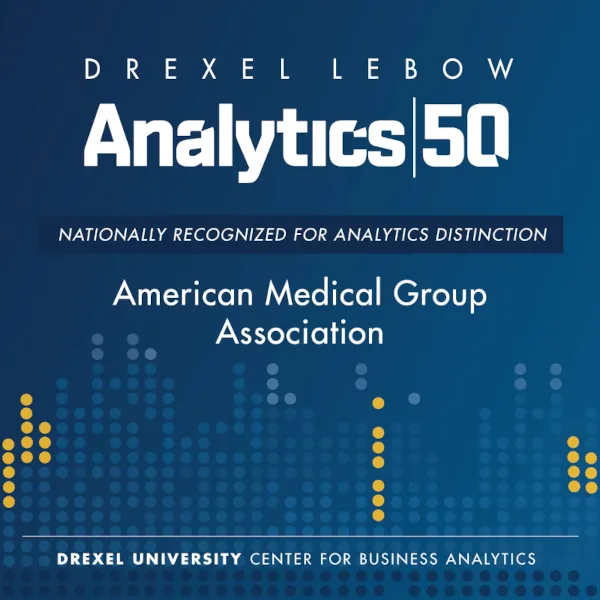Health Services Research

Research Opportunities: See the latest opportunities and sign up to start reaping the benefits of participation
Learn MoreAMGA Research Interest Group (RIG): Join AMGA's community of like-minded colleagues seeking innovative, evidence-based solutions to perplexing problems standing between your organization and better quality and outcomes.
Learn MoreAMGA brings together members, federal and academic institutions, private foundations, and corporate partners to define relevant questions, co-produce research results, and spread findings to advance improvements in health care and patient outcomes.
“I believe in the AMGA mission. I wanted the understanding of why there are healthcare disparities surrounding peripheral artery disease to be explored and made accessible to other leaders and that motivated me to participate.”
Kathy Jo Carstarphen, MD, MPH, MA, Ochsner Health
“I appreciate the hard work AMGA has done motivating us to make these successful changes, there have been steady improvements in readmits and even ADEs. We’ve got more patients taking therapy, yet the adverse event rate didn't go up. I thought that was amazing.”
James Taylor, Pharm D, North Mississippi Health Services
Since 2015, AMGA has conducted more than 56 research studies covering 30 topics, engaging more than 200 health care organizations and medical groups, and touching over 10 million patients.
- Database/quantitative studies: Longitudinal analyses using claims and clinical data.
- Implementation studies: Pragmatic studies that inform the spread and use of interventions in a various settings with a variety of methods and tools.
- Measure development: Developing and calibrating measures for meaningful use by AMGA members.
- Predictive analytics: Models developed using statistical techniques and computational approaches leveraging large datasets.
- Qualitative studies: Roundtables and interview discussions with health system leaders and front line healthcare professionals to understand processes driving behaviors such as for peripheral artery disease
- Mixed methods studies: research integrating quantitative data with rich qualitative insights to identify forces that drive trends in health care to develop actionable solutions to major challenges.
Discovering novel ways to integrate evidence into quality and care. Learn how you can leverage proven investigative methods to solve complex and resistance challenges.
AMGA is using tried and tested tools from research on implementation to solve complex problems in health care that stand between your clinic and major improvements in patient care that can lead to better care and lower costs.
Learn MoreThe Bridge Award honors AMGA member organizations that are bridging the gap between research and practice through outstanding accomplishments and sustainable improvements in care stemming from an AMGA research initiative. North Mississippi Health Services received the 2024 award for its leadership and vision in the creation of the VTE Care Connections program to improve care for people with venous thromboembolism (VTE).
Learn More
Research Policies and Regulations
AMGA was a recipient of the Drexel LeBow Analytics 50 award for developing and testing the reliability, feasibility, and validity of an EHR-based quality performance measure for colorectal cancer (CRC) screening follow up, in partnership with AARP and Optum Labs. Analysis of 38 AMGA members’ data found an average 48% follow up colonoscopy rate, after a positive stool-based test, ranging from 13%–70%. CRC is the second leading cause of cancer death in the U.S. and a positive stool-based screening result is associated with about 10 times higher risk of CRC, but existing quality measures only address initial screening. This measure is now being tested in AMGA Foundation’s best practices learning collaborative focused on both initial screening and timely follow-up as well as closing health equity gaps in care. Evidence shows rates of timely follow-up after a positive stool-based test are 12% lower for Black or African American and Asian patients offering participating organizations an opportunity for tangible progress on health equity.